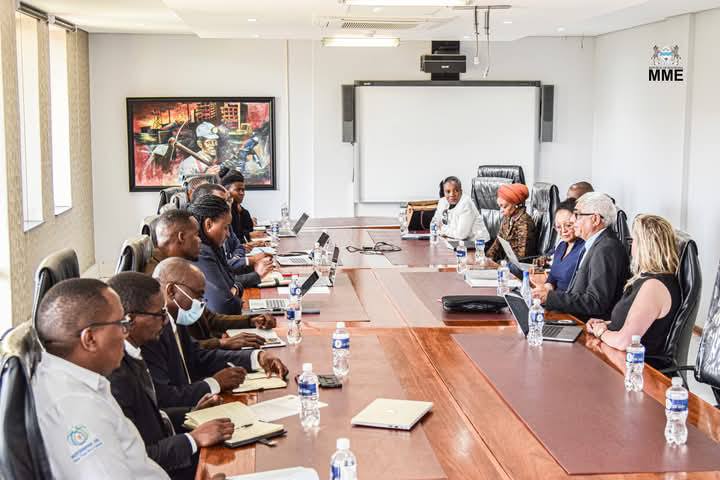The University of Botswana (UB) has partnered with South Africa’s Wits University in a bold step toward accelerating innovation and research in renewable energy, reinforcing Botswana’s national ambition to derive 50% of its energy from renewable sources by 2030.
This strategic partnership was highlighted during a high-level engagement in Gaborone, where Professor Imraan Valodia, Pro Vice Chancellor for Climate, Sustainability, and Inequality and Director of the Southern Centre for Inequality Studies at Wits University, led a delegation to meet with Botswana’s Ministry of Minerals and Energy.
During the meeting with Acting Deputy Permanent Secretary Mr. Midas Sekgabo, the two institutions exchanged insights on the green energy transition and explored joint research opportunities that could position Botswana as a regional leader in clean and sustainable energy.
Mr. Sekgabo welcomed the collaboration, stressing the critical need for private sector and academic involvement in achieving the country’s renewable energy targets. He noted that such partnerships are key to fostering the kind of innovation needed to address both local and global energy challenges.
“Our goal of reaching a 50% renewable energy mix by 2030 is ambitious, but achievable through smart collaboration, strong policy frameworks, and research-driven solutions,” Mr. Sekgabo said. “The partnership between UB and Wits University represents a forward-thinking model that brings together academic excellence and real-world application.”
Professor Valodia emphasized the role of higher education institutions in supporting just and equitable energy transitions, particularly in Southern Africa. He highlighted the importance of cross-border academic collaboration in tackling shared challenges such as energy poverty, climate change, and inequality.
“Universities are uniquely positioned to lead on climate solutions by generating knowledge, building skills, and informing policy. Our partnership with UB is not just about research, but about making real impact on communities, economies, and ecosystems,” said Professor Valodia.
The collaboration will initially focus on areas such as solar and wind energy, energy storage technologies, grid modernization, and sustainable energy policy. Both institutions plan to co-develop research projects, facilitate academic exchanges, and engage with government and industry stakeholders to scale up practical solutions.
This partnership also aligns with Botswana’s broader energy transition strategy, which includes recent initiatives to expand solar energy infrastructure, promote off-grid solutions in rural areas, and attract foreign investment in clean energy projects.
Experts see the UB-Wits partnership as a timely and strategic move that can help bridge research gaps, support national policy implementation, and empower local talent to lead the country’s transition to a low-carbon future.
As the world moves toward cleaner, more resilient energy systems, collaborations like this one offer a blueprint for how African nations can take charge of their energy futures through homegrown innovation and regional solidarity.










